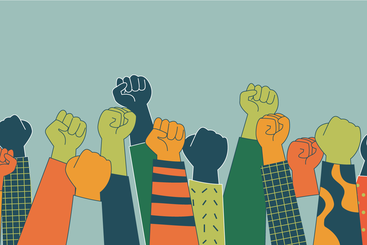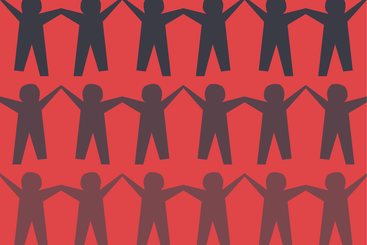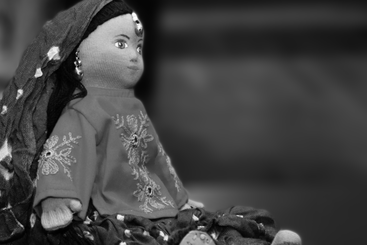This Insight contains first-hand accounts relating to gender-based violence, which some readers may find distressing.
Women are the original first responders in crisis settings, in their homes and communities, as well as through organisations they lead. Women’s rights organisation (WROs) operating in crisis settings are crucial for bringing about humanitarian response that is not just inclusive and accessible for affected people in all their diversity, but also more effective and impactful, even and especially during the Covid-19 pandemic.
Upcoming Humanitarian Policy Group (HPG) research includes interviews with 18 women leading responses in Kenya and South Sudan – settings affected by conflict, displacement and climate hazards as well as the pandemic. This research shows that WROs are under immense financial and organisational strain but have nonetheless met the challenge of the pandemic, even as many international actors were forced to withdraw. Interviewees described scaling up and diversifying their services to meet increasingly complex needs – for food, hygiene products, livelihoods support and personal protective equipment (PPE) – without additional funding or capacity, and at increasing risk to their own health and security. Many supported livelihoods by producing masks, sanitiser or hand-washing stations. They also translated and disseminated public health information to ensure accessibility across languages, platforms and disabilities, and combatted stigma against people with Covid-19 in their communities.
Gender-based violence (GBV) is already core to most WROs’ work, but the pandemic has led to increased cases and has added complexity to reaching survivors who are now more inaccessible than ever due to social distancing and lockdowns. One Kenyan interviewee reported that she and colleagues had seen the highest number of GBV survivors since the organisation’s inception, despite being ‘in this field for more than 20 years’. In response, WROs have embedded GBV response into other areas of work and pivoted to new forms of outreach using phone lines and WhatsApp.
These WROs have proven especially important for people facing multiple and intersecting exclusions – impoverished women and girls, women with disabilities, displaced women, and people with diverse sexual orientations, gender identities, gender expressions and sex characteristics (SOGIESC) – who are often the most marginalised.
However, as the need for WROs’ services has increased, so too have the challenges of providing those services. Feminists and gender justice advocates have long known that WROs are effective and crucial humanitarian actors, but they have not always had access to concrete evidence to make that case to donors and major players in international humanitarian response. While there has also been considerable commentary to date on the gendered impacts of the pandemic, much less has been said on the specific impacts in humanitarian settings and the complexities they bring. As a result, WROs operating in crisis settings have historically been underfunded and under-supported as crisis response actors – and this state of affairs has only deteriorated during the Covid-19 pandemic. Forthcoming research by Development Initiatives shows that, while funding for gender-specific humanitarian work is already slim, direct funds reaching local and national organisations reported to the Financial Tracking Service of the UN Office for the Coordination of Humanitarian Affairs (OCHA) has actually declined during the pandemic from 4.9% of total gender funding in 2018 to 2.9% in 2020.
In crisis settings, the challenges include threats of violence and other security concerns for WROs themselves, as well as the closing down of civic spaces in both countries. In conflict-affected South Sudan, WROs reported that Covid-19 containment measures had been operationalised for political ends:
At the peak of the pandemic, we had so many rape cases, our youngest survivor is about three months old, there was also a survivor who was eight years who had been gang raped. WROs saw that we took the initiative to protest and go to the streets to call out and demand for justice for her and other survivors. In the midst of organising, we got threats warning us not go to the streets, because if we did, it would be seen as a political rally and that we would be contravening the Covid-19 restrictions. But for us, the argument was that raping women and a young girl for that matter was political, our bodies are political as well. So, we decided that if they wanted to arrest us, they could.
Unsurprisingly, interviewees also reported an intense level of personal and organisational strain related to their rapidly increasing workloads, unstable funding and personal caretaking responsibilities. Small, grassroots and local civil society organisations tend to employ women, who faced increased care burdens at home due to school closures, sick family members, and additional cleaning and disinfection needs.
People are sick, so that alone caused a lot of distress, a lot of trauma, as well, to all of us. It also created a dynamic within the team because in our organisation we believe in teamwork, we believe in sisterhood, but there was fear coming close to your sister, because you are like, are you going to give me Covid? Stay away from me. So that alone as well affected even our work. The responsibility of ensuring that the team were safe [was] stressful.
Additionally, conducting this research proved to be complicated and difficult when refracted through the pandemic lens. Informants were enthusiastic, but they were also very hard to reach and often had to cancel appointments for remote interviews due to the demands of providing critical assistance, lack of access to data bundles or internet connections, or other impediments. We worked to overcome these obstacles by facilitating connectivity, arranging translation where possible and creating flexibility in the research design. These difficulties demonstrate the point of our research: local and national WROs are excluded not just by funding, capacity and recognition in the humanitarian sector but also by technology, connectivity, accessibility and language barriers.
This Wednesday, HPG is joining the Feminist Humanitarian Network and the Women’s Refugee Commission in hosting a parallel event on the role of WROs in conflict and crisis at the 66th Commission on the Status of Women (CSW). We will share our new research alongside a range of women’s organisations that work in crisis settings to provide critical humanitarian aid and to mitigate the Covid-19 pandemic. Our upcoming report on WROs as humanitarian actors in Kenya and South Sudan shows that WROs are adaptable to emerging challenges, are embedded in relevant social and cultural contexts, and work in ways that transcend the siloes of the humanitarian, development and peace-building sectors.
The evidence shared at CSW should be used to make the case, within humanitarian agencies and across responses, that women living in crisis settings are not just the first but best-placed responders. They are also key to unlocking cross-nexus working and localisation under the Grand Bargain. What they need now is meaningful inclusion in the humanitarian system, including recognition in mechanisms like humanitarian response plans, and flexible, long-term and direct funding for their transformative work.




